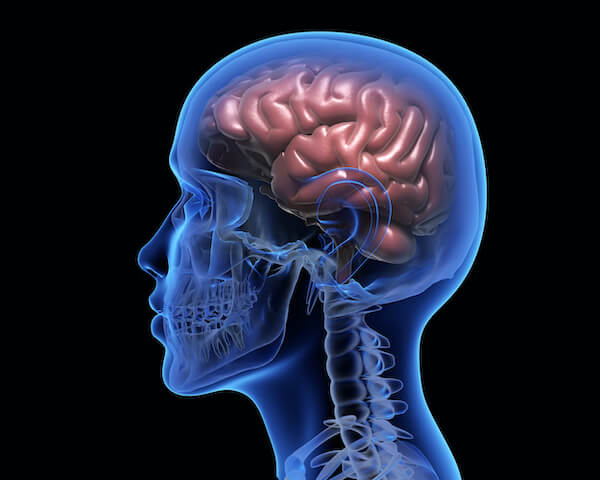When you consume cannabis, do you consider the impact it has on your body and your mind? This all-natural ancient medicine is in the early stages of scientific research, but we are starting to form a clearer picture of its medical value.
You might have a few questions about why cannabis makes you feel “high” or how it provides therapeutic value. This article seeks to explain what we know cannabis does in your brain, and how cannabinoid receptors make you feel that ‘buzz.’
An Introduction to Cannabis
Cannabis is a natural plant grown widely around the world and used for millennia as a medicinal substance. Most commonly, it’s consumed either by inhaling the smoke (or vapor) of the heated flower. Today, many also enjoy cannabis-infused edibles, topicals, and more.
Cannabis is a remarkable plant, containing compounds you might already know like essential oils and flavonoids, plus compounds called cannabinoids. The two most popular and best-understood cannabinoids are cannabidiol (CBD) and tetrahydrocannabinol (THC). But did you know there are many more?
There are over 100 different cannabinoids, with scientists isolating more all the time. These cannabinoids interact with a natural biological system called the endocannabinoid system or ECS.
What is the Endocannabinoid System?
According to NORML, the ECS is a vital physiological system found in all vertebrate species. They go on to explain, “Researchers have identified two cannabinoid receptors: CB1, predominantly present in the nervous system, connective tissues, gonads, glands, and organs; and CB2, predominantly found in the immune system and its associated structures. Many tissues contain both CB1 and CB2 receptors, each linked to a different action. Researchers speculate there may be a third cannabinoid receptor waiting to be discovered.”
You may be wondering, what exactly is the endocannabinoid system? To quote another detailed explanation from the pages of Biological psychiatry:
“The endocannabinoid system (ECS) is a widespread neuromodulatory system that
plays important roles in central nervous system (CNS) development, synaptic plasticity, and the response to endogenous and environmental insults. The ECS is comprised of cannabinoid receptors, endogenous cannabinoids (endocannabinoids), and the enzymes responsible for the synthesis and degradation of the endocannabinoids.”
Here is another definition, according to UCLA Health, “It appears the main function of the endocannabinoid system is to maintain bodily homeostasis—biological harmony in response to changes in the environment.”
The endocannabinoid system is one of the systems that keeps the body balanced. When you consume cannabis, the hundreds of cannabinoids interact with the endocannabinoid system, through the CB1 and CB2 receptors.
The ECS is a part of your body that affects almost everything you do— and cannabinoids can influence its function for therapeutic impact.
Cannabinoid Receptors and Cannabis
Let’s review what we know so far:
- There are two major cannabinoids to consider – CBD and THC
- There are two different receptors – CB1 and CB2.
According to Foria Wellness, “…CB1 receptors are essential for a healthy functioning brain and are one of the most common receptors in the entire nervous system. Depending on what region of the brain they are located in, they can be moderators of your memory, mood, motor function, or your perception of pain.“ [5]
Cannabinoids not only interact with each other but with the body’s natural endocannabinoid system. Each cannabinoid, and combination of cannabinoids, will produce slightly different experiences and therapeutic effects.
Importantly, THC is the only known cannabinoid capable of producing a high. Once ingested, THC binds directly with the CB1 receptor, found in large concentrations in the human brain. Other cannabinoids, like CBD, CBN, CBC, and others, do not trigger any intoxication. CBD doesn’t bind with any receptor but tends to influence their activity. Even more interesting, CBD seems to reduce the strong intoxicating effects of THC by unlocking the molecule from the CB1 receptor.
Different Medicinal Effects, Depending on Cannabinoids and Method of Consumption
Different products and strains will lead to surprisingly different effects. There may be a variety of medical applications depending on the strength of the cannabis consumed, the cannabinoid profile, and the route of delivery.
If you have consumed a large amount of cannabis containing high levels of THC (for example, taking a dab of some concentrate), it will affect more of the receptors, for longer, than if you consume less THC, for example, in a bowl from a bong.
The method of delivery and the concentration of the product has a substantial and direct relationship with therapeutic or recreational value. If you are looking for a more intense experience, then more THC would satisfy that desire. If you are looking for a mild experience, then seek strains with low or no THC and higher CBD levels.
Remember, CBD based products do not cause a “high,” feeling like THC products do. Each cannabinoid uniquely affects the endocannabinoid system.
Whether you are relying on cannabis right now as a means of medical treatment, or simply enjoying it recreationally, why not be informed on the effects of this magical plant? Learn how the different cannabinoids and methods of consumption affect you to deliver medicinal results. It’s valuable to understand the way this medicinal plant works within your body to better control the relief.

